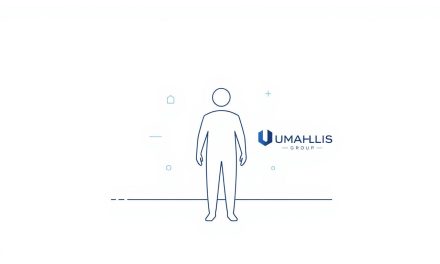Did you know that nearly 70% of professionals now prioritize developing skills in their current role over seeking a new job title elsewhere? The professional world has fundamentally changed.
Economic shifts and industry transformations have reshaped what it means to be successful. Climbing the ladder looks different today. It’s less about frequent jumps and more about strategic, meaningful evolution right where you are.
Understanding your personal path for advancement is more critical than ever. This isn’t about settling. It’s about building a solid foundation of expertise and resilience that offers lasting stability and opens new doors.
This guide is designed for anyone looking to maximize their professional journey. We will explore practical strategies to help you unlock your capabilities and achieve genuine success within your current opportunities.
Table of Contents
Key Takeaways
- The definition of professional success has shifted from job-hopping to internal development.
- Building expertise in your current role is a powerful strategy for long-term stability.
- Personal growth now often matters more than a change in job title.
- This guide offers actionable advice for professionals at any stage.
- Focusing on your current position can create more sustainable opportunities.
The Changing Dynamics of Career Growth Potential
Today’s professional landscape looks vastly different from the rigid career structures of the past. The old model of climbing a straight corporate ladder has been replaced by more flexible, personalized approaches to advancement.
Understanding Modern Career Pathways
Professional journeys now resemble intricate webs rather than simple ladders. People can move sideways, take on special projects, or develop new skills within their current positions.
This multidirectional approach allows for greater flexibility. It accommodates diverse goals and personal priorities that matter to today’s workforce.
Evolving Job Roles and Stability
Industry changes and economic shifts have transformed how we view stability. What was once seen as staying in one place too long is now recognized as building valuable expertise.
Developing deep knowledge within an organization creates lasting value. This approach often leads to more meaningful professional development over time.
Understanding these new dynamics helps professionals make smarter decisions about their future. It’s about finding the right path for individual success.
Recognizing Opportunities for Professional Development

Organizations are pouring unprecedented resources into employee learning, yet many professionals overlook these powerful internal opportunities. Spending on development programs for large companies jumped by almost 25% in 2023, reaching a staggering $400 billion. This shows a deep organizational commitment to fostering employee skills.
Seeing these chances for what they are is the first step. It allows you to achieve genuine professional success without needing to change companies. Internal training is uniquely valuable because it focuses on company-specific skills and goals.
Internal Training and Mentorship Benefits
Formal programs are just one part of the equation. Mentorship has become a cornerstone of professional development. The number of Fortune 500 companies with mentoring programs soared from 70% to 94% between 2009 and 2024.
This shift highlights the unique value of personalized guidance. A mentor provides real-time feedback and shares practical experience that generic courses can’t match. This support is crucial for developing both technical abilities and essential soft skills.
By actively engaging in these opportunities, you build deep expertise. You gain valuable experience that positions you as an indispensable, continuously learning employee.
Staying Put: The Smart Move for Long-Term Advancement
Building a lasting professional legacy within one organization offers unique advantages that external moves cannot match. While job-hopping might seem exciting, consistent presence in your current company creates a solid foundation for meaningful progression.
Building Credibility and Expertise Within Your Company
Staying with your organization allows you to develop deep institutional knowledge that newcomers simply cannot replicate. You become the go-to expert who understands not just your role, but how everything connects. This specialized insight makes you invaluable during important projects and decision-making processes.
Your consistent presence builds trust with colleagues and leadership. People learn to rely on your expertise and dependability. This reputation for reliability significantly increases your visibility when promotion opportunities arise.
Internal transitions into new roles happen more smoothly because you already understand the company culture and key relationships. You skip the lengthy adjustment period that external hires face. This familiarity allows you to hit the ground running in your new position.
Seniority within your organization often leads to priority access to specialized training and development programs. Companies naturally invest more in employees who have demonstrated long-term commitment. This creates a powerful cycle where stability breeds more opportunities for your professional journey.
Strategies to Build Your Career Capital

What if you could systematically build the exact skills and connections that position you for advancement right where you are? Career capital represents the valuable expertise and relationships you accumulate over time. This strategic approach makes you increasingly valuable within your organization.
Enhancing Skills Through Challenging Assignments
Taking on difficult projects pushes you beyond your comfort zone. These challenges help you develop new abilities that are crucial for professional success.
When you volunteer for complex tasks, you demonstrate initiative and problem-solving capabilities. This approach allows you to unlock your potential through professional development while building tangible value for your team.
Expanding Your Internal Network
Building relationships across departments provides unique insights into business operations. These connections foster collaboration and increase your visibility.
A strong internal network positions you as someone who understands the bigger picture. Colleagues from different areas can offer fresh perspectives on challenges and opportunities.
Regular interactions with various teams help you identify inefficiencies and propose effective solutions. This proactive approach showcases your strategic thinking and commitment to organizational success.
Maximizing Growth Without Changing Companies
Internal development programs represent one of the most overlooked assets for professionals seeking meaningful advancement. These resources provide powerful ways to expand your capabilities right where you are.
Leveraging Development Programs and Mentoring
According to LinkedIn’s 2024 Workplace Learning Report, 94% of employees would stay longer at a company that invested in their development. Organizations prioritizing learning report 24% higher profit margins, creating a win-win situation.
Take advantage of training, certifications, and workshops to apply new skills in your current role. These development opportunities keep you relevant in evolving industries.
Leadership development programs are essential for nurturing talent within organizations. They provide structured learning experiences that build critical competencies for advancement.
Mentoring relationships offer personalized guidance that accelerates growth more effectively than generic programs. This approach helps employees discover new perspectives and opportunities.
Actively participating in these learning initiatives demonstrates your commitment to continuous development. It positions you as someone invested in building expertise and expanding capabilities.
Empowering Your Employee Career Journey
Forward-thinking organizations now recognize that employee development directly fuels business success. When companies actively support professional journeys, they create environments where both individuals and the organization thrive together.
Creating a Supportive Learning Culture
Building a culture that celebrates development makes a significant impact. Employees who regularly discuss their goals with managers are 2.8 times more likely to be engaged in their work.
This approach dramatically improves retention. Career progression remains the top reason people seek new jobs, yet 94% would stay longer if their employer invested in their development.
Recognition and rewards for learning milestones demonstrate organizational commitment. Visible leadership support transforms development from an optional extra to a core value.
Designing Personalized Career Paths
Personalized paths help team members visualize their future within the company. They understand exactly what skills and experience they need to advance.
Regular one-on-one meetings allow managers to provide feedback and adjust plans. Offering varied development opportunities—from workshops to cross-functional projects—caters to different learning styles.
When employees see clear advancement opportunities, they invest more deeply in their current roles. This comprehensive approach transforms daily work into a meaningful progression journey.
Conclusion
The most sustainable path to success begins with maximizing opportunities within your existing organization. True professional advancement isn’t about constant moves but about strategic evolution right where you are.
By deepening your expertise and strengthening relationships, you demonstrate consistent value over time. Embracing challenges and seeking mentorship positions you for long-term achievement.
Your professional journey becomes most rewarding when you focus on creating impact rather than chasing titles. The strategies discussed here help unlock development within your current path.
Remember that meaningful progress is within reach when you commit to continuous learning and building trust. The most successful professionals understand that advancement is a shared journey requiring mutual commitment to goals.
FAQ
What are some key ways to advance my professional development without switching jobs?
You can focus on building your value by taking on new responsibilities, seeking out internal training, and actively participating in company programs. Expanding your internal network and finding a mentor are also powerful strategies for long-term advancement within your current organization.
How important is building credibility for my employee journey?
Building credibility is essential. It establishes you as a reliable expert and increases your chances for promotions and challenging assignments. This trust, built over time, is a cornerstone of success and opens doors to new opportunities.
What role do learning and skill development play in career progression?
Continuously learning new skills is crucial. It keeps you adaptable and valuable in a changing industry. Embracing development opportunities ensures you are prepared for future roles and helps you achieve your professional goals.
How can I identify the right advancement opportunities for my path?
Start by having open conversations with your leaders about your aspirations. Look for roles that align with your long-term objectives and require you to stretch your abilities. Pay attention to business needs, as these often highlight the most valuable areas for skill enhancement.
Why is employee retention linked to professional development?
Companies that invest in their team’s journey through training and clear paths for progression see higher retention. When employees feel supported in their goals and see a future within the company, they are more likely to stay and contribute to the business’s success.





